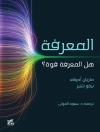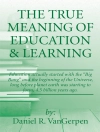This book considers the past, present and future directions of innovation in US-based Intensive English Programs (IEPs), which provide international students with an immersion-style environment for learning academic English, prior to matriculating into a full-time college or university degree program. IEPs frequently serve as sites for pre-service teacher preparation, curricular experimentation and research, and yet little published work takes a critical look at the advantages and shortcomings of such programs. The chapters in this book provide a nuanced view of this microcosm of the English language teaching industry, demonstrating the various ways that IEPs have impacted and continue to influence the wider fields of Applied Linguistics and TESOL. They emphasize the unique positioning of IEPs within higher education and describe the various ways IEP practitioners can influence their host institutions and beyond.
Jadual kandungan
Contributors
Jason Litzenberg: Introduction: Understanding Innovation in University-Based Intensive English Programs
Chapter 1. Diane Larsen-Freeman: The First IEP: The English Language Institute at the University of Michigan
Chapter 2 Jason Litzenberg and Minjin Kim: ELI, ELP or IEP? Tracing the Growth of an Industry
Chapter 3. Sharon Cavusgil, Martyn J. Miller, Rebecca Smith-Murdock and Betty Soppelsa: Founding the Modern Era: A Conversation Among Former IEP Directors
Chapter 4. Jeremy D. Slagoski: Employment Trends in English Language Programs
Chapter 5. Sarah Arva Grosik: Beyond Revenue: IEP Service to the University and Community
Chapter 6. Michael E. Anderson and Lee Anne Berger Godfrey: Multilingualism, Multiculturalism and Advocacy: How Intensive English Language Programs can Impact Campus Culture
Chapter 7. Nikki Mattson and Jacqueline M. Gianico: Behold-Remold: Navigating and Innovating Liminal Spaces as an IEP Practitioner-Administrator-Scholar (PAS)
Chapter 8. JPB Gerald: The Missing Puzzle Piece: Racism and Native-Speakerism Scholarship
Chapter 9. James M. Perren: The Other Side of Community Engagement Projects: Benefits to the Community?
Chapter 10. Kleber Aparecido da Silva, Lauro Sérgio Machado Pereira, Dllubia Santclair, Silvia Penna and Oseas Bezerra Viana-Jr: Mind the Gap! Voices of Brazilian English Language Teachers in a Continuing Education Intensive English Program in the United States
Chapter 11. Carter A. Winkle: Over a Decade of Third-Party Pathway Programs in the United States
Chapter 12. Ekaterina Arshavskaya and Marta Halaczkiewicz: Brave New Classrooms: On the Role of Technology in IEPs
Chapter 13. Crystal Bock Thiessen: Where to From Here? Continuing to Innovate, Respond and Reform in IEPs
Index
Mengenai Pengarang
Jason Litzenberg has a Ph D in Applied Linguistics and ESL from Georgia State University; he has over 20 years of experience teaching English and language education in Ecuador, Germany, the U.A.E, and the U.S. Jason is Teaching Professor of Applied Linguistics at The Pennsylvania State University, where he is affiliated faculty of the Rock Ethic’s Institute and fulltime Director of the Intensive English Communication Program (IECP). He is currently Vice President of Three Rivers TESOL in Pennsylvania and Vice-President of UCIEP. His academic/research interests include phonetics and phonology, sociolinguistics, linguistic landscapes, language ideologies, English as a Lingua Franca (ELF), program administration, and decolonial scholarship.










